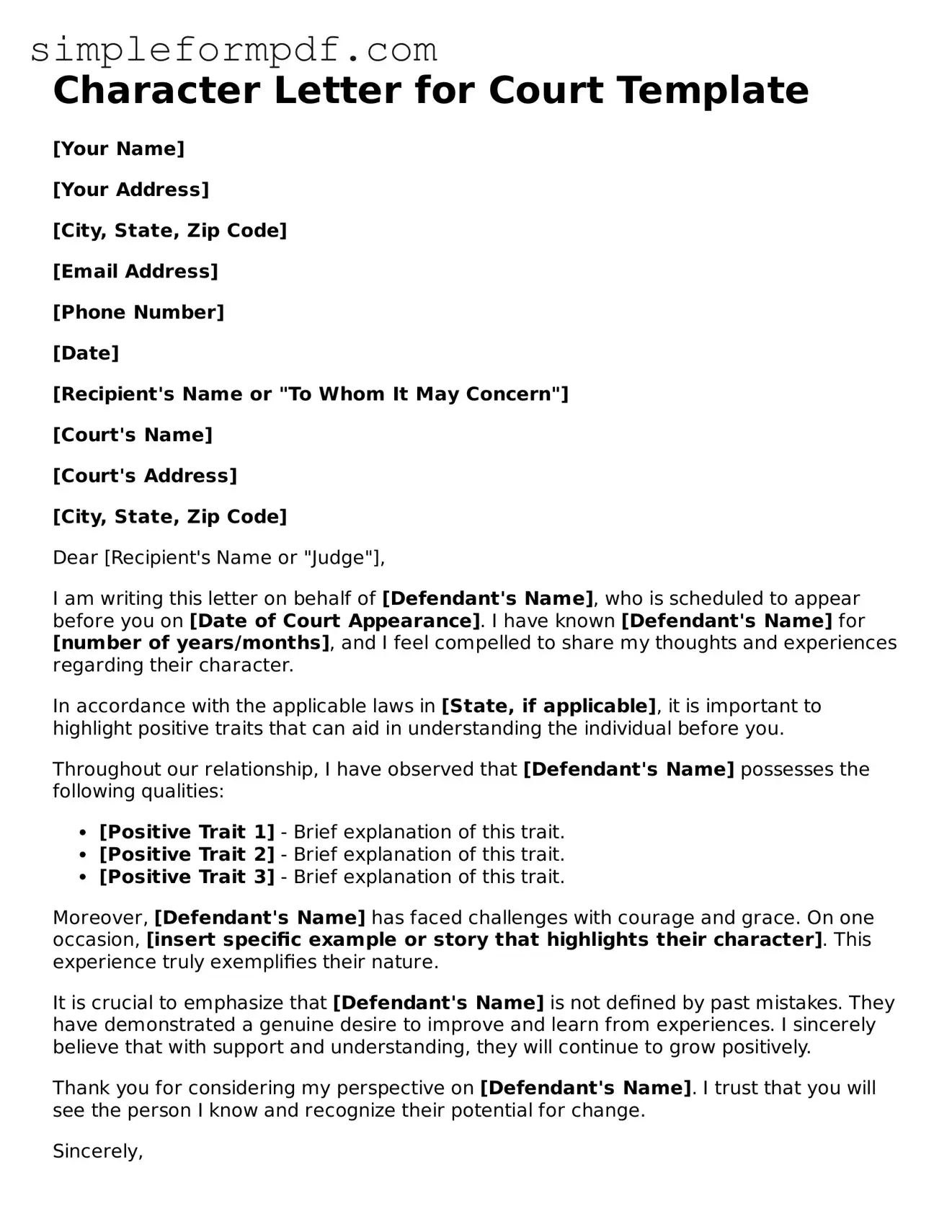Fillable Character Letter for Court Template
The Character Letter for Court is a document that individuals can submit to provide a personal perspective on a defendant's character and behavior. This letter often plays a significant role in influencing a judge's decision during legal proceedings. Understanding how to effectively write and present this letter can make a meaningful difference in the outcome of a case.
To get started on filling out the Character Letter for Court form, click the button below.
Launch Editor

Fillable Character Letter for Court Template
Launch Editor
Need instant form completion?
Finish Character Letter for Court online in just a few minutes.
Launch Editor
or
Download PDF
